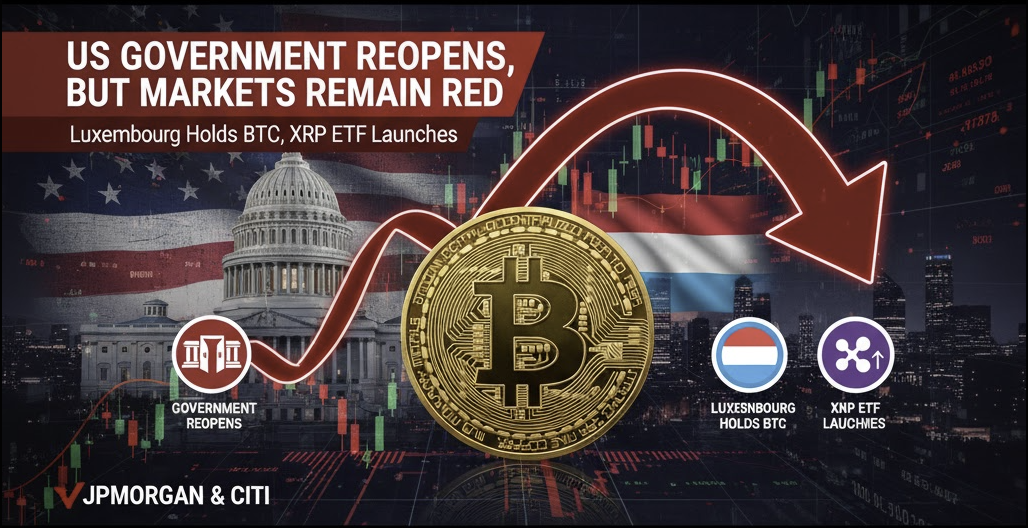Market Overview
On Monday (05/05-US), U.S. stock markets closed lower across all three major indices, reflecting ongoing uncertainty around global trade and economic policy. The Nasdaq led the losses, dropping 0.74%, while gold prices rose to $3,338 per ounce and crude oil edged up to $57 per barrel, reflecting investor caution.

Bitcoin pulled back slightly to around $94,000, and most major altcoins followed suit, contributing to a total crypto market capitalization of approximately $3.035 trillion.

Tariff Updates
Despite the lack of finalized tariff agreements, several notable developments have emerged. India has proposed a mutual tariff exemption with the United States, specifically targeting steel, auto parts, and pharmaceuticals. This proposal includes reciprocal benefits within specified import quotas, aiming to stabilize trade relations amid broader economic headwinds.

In contrast, Japan’s request for a complete tariff exemption was rejected by U.S. officials. However, the Biden administration indicated it might consider reducing the planned 14% counter-tariff, set to take effect on July 9, after the current 90-day suspension expires. The extent of any reduction will depend heavily on the progress of ongoing trade talks.
China remains at the center of this tariff dispute, yet no significant breakthroughs have been reported. President Trump recently commented that most Chinese imports are not essential to American consumers, implying that the U.S. economy could endure a prolonged standoff. He noted that while shortages might lead to fewer toys for children and slightly higher prices, this is a manageable trade-off for long-term economic independence.
Trump further stated that he would not lower tariffs on Chinese imports until Beijing demonstrates a genuine commitment to negotiation. He acknowledged that, eventually, some tariff relief might be necessary to restore trade flows, but emphasized that this will not happen until China makes substantial concessions.
Impact on Corporations
Despite Ford reporting strong Q1 earnings, the automaker’s stock fell due to ongoing concerns about the impact of tariffs. Ford, which manufactures primarily in the United States, still relies on imported components, making it vulnerable to trade disruptions. The company has refrained from issuing full-year guidance, citing the need for further clarity on tariff impacts.

Similarly, Mattel, the maker of Barbie, has warned that prolonged trade conflicts could force the company to raise toy prices, potentially reducing sales and profit margins. This, in turn, could lead to layoffs and further financial strain.
In China, manufacturers face even more severe challenges. Many factories are already reducing production or laying off workers as U.S. orders dwindle. Without the ability to export, these businesses face the risk of severe deflation, reflecting weak domestic demand and the limited effectiveness of government stimulus efforts.
President Trump has urged patience, suggesting that economic pressure on China will eventually force Beijing to agree to a more favorable trade deal. He noted that the U.S. only needs to withstand short-term economic pain to secure long-term gains, while China faces a more immediate and significant economic risk.
Trump’s Support for Crypto
In a recent statement, former President Donald Trump reiterated his support for the cryptocurrency sector, emphasizing the need for the United States to lead in this space to counter China’s growing influence. Trump argued that millions of Americans are now invested in digital assets and that ignoring this constituency could be politically costly.
He criticized his political rival, Joe Biden, for initially opposing cryptocurrencies, only to reverse course as digital assets gained widespread popularity. Trump’s stance has resonated with a significant portion of the electorate, particularly younger voters who view crypto as a symbol of financial independence and innovation.
Warren Buffett: What Is Money?
"What is money?" This question has become central to today’s financial debate, as investors grapple with the long-term effects of inflation and monetary policy. Despite his well-documented skepticism of Bitcoin, legendary investor Warren Buffett shares a key concern with many crypto advocates: the erosion of fiat currency value through excessive money printing.

Buffett has repeatedly warned that governments, including the United States, have a long history of devaluing their currencies to manage debt and fund public spending. He argues that this is not a temporary phenomenon but a structural issue, making it increasingly difficult for savers to preserve their purchasing power.
This perspective aligns with the motivations behind Bitcoin’s creation: to offer a decentralized, scarce asset that can preserve value over time. For many investors, this is a critical hedge against the systemic risks inherent in the global financial system.
Financial Perspectives from Robert Kiyosaki
Robert Kiyosaki, author of "Rich Dad Poor Dad," has echoed these concerns, predicting a massive market crash involving stocks, bonds, and real estate. Kiyosaki has shifted his investment strategy towards assets like gold, silver, and Bitcoin, which he believes offer superior protection against currency debasement and financial instability.
Kiyosaki warns that as central banks continue to print money at unprecedented levels, traditional savers will suffer the most, as their wealth is gradually eroded by inflation. His message is clear: in an era of financial uncertainty, tangible assets like Bitcoin represent a safer store of value.
Conclusion
As global economic uncertainties persist, the debate over the nature of money and the role of assets like Bitcoin will only intensify. With inflation fears mounting and central banks struggling to maintain financial stability, the case for decentralized digital assets as a hedge against monetary mismanagement continues to strengthen.
Disclaimer
This article is for informational purposes only and does not constitute financial advice. Always conduct your own research before making investment decisions.


.png)





